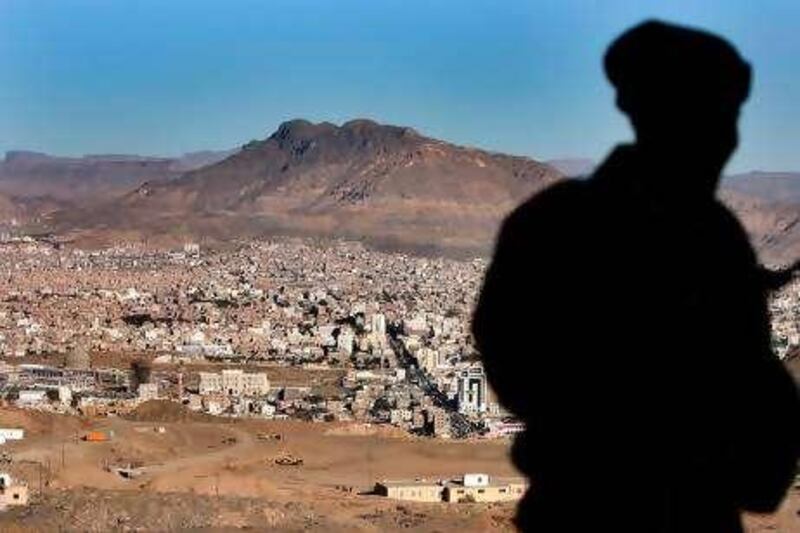Yemen will aim to use a US$370 million (Dh1.35 billion) loan from the IMF to stimulate economic growth against a backdrop of pressing security concerns and dwindling oil revenues. On Monday, the IMF approved the loan to help the country slim its budget deficit and reduce poverty. Yemen hopes to put the money towards ensuring the success of its three-year plan aimed at reforming public finances while raising social spending to support its rapidly growing population.
"Yemen is confronted with a range of difficult economic challenges related to its heavy dependence on declining oil revenues, widespread poverty and water shortages," said Naoyuki Shinohara, the IMF's deputy managing director. "The global financial crisis has aggravated these challenges through a reduction in world oil prices, resulting in mounting macroeconomic imbalances." Yemen's monetary reserves have been steadily sapped by the decline in oil prices from record peaks of $147 a barrel two summers ago and repeated injections of cash to try to bolster the beleaguered Yemeni rial. The rial fell to its lowest level ever against the US dollar last week, prompting the central bank to pump $57m into the exchange market, the latest of a series of cash injections to support the currency.
The currency's decline has added to the country's lingering woes of security unrest caused by wars in the northern territories and al Qa'eda attacks as well as political instability linked to tribal disputes. Under Yemen's plan, it aims to lower its budget deficit to 3.5 per cent of GDP, while targeting annual economic growth of 5 per cent, said the IMF. Yemen was focused on spurring non-hydrocarbon economic growth, while keeping inflation within levels of about 10 per cent annually, it said.
The IMF said the country may see growth of 8 per cent this year after a 3.9 per cent expansion last year, with inflation rising to 9.8 per cent. In order to help widen the country's revenue base, the government plans to introduce a general sales tax and abolish exemptions on tax and customs duties. Yemen is focusing on diversifying its revenues as it prepares for the exhaustion of its oil reserves, which account for 70 per cent of its budget. Yemen's hydrocarbon production is expected to increase to 438,000 barrels a day this year, before dropping to 394,000 barrels a day by 2013, according to the IMF.
The IMF said the role of Yemen's donors was crucial in ensuring the success of the country's objectives. Yemen was the largest recipient of foreign aid from the UAE last year, with more than Dh2.8bn in assistance. International donors pledged to increase aid in January after a series of attacks by a branch of al Qa'eda based in Yemen. Around $53m of the IMF's loan would be provided to Yemen immediately, with remaining sums subject to semi-annual reviews, the fund said.
"When this type of assistance is provided it is important it is used properly and there are efforts on behalf of the international community to ensure the intended results are achieved," said Jarmo Kotilaine, the chief economist at Saudi Arabia's NCB Capital. "Yemen is going through a difficult balancing act and it needs to be given a real nudge in the right direction to help it stabilise its economy."
@Email:tarnold@thenational.ae





